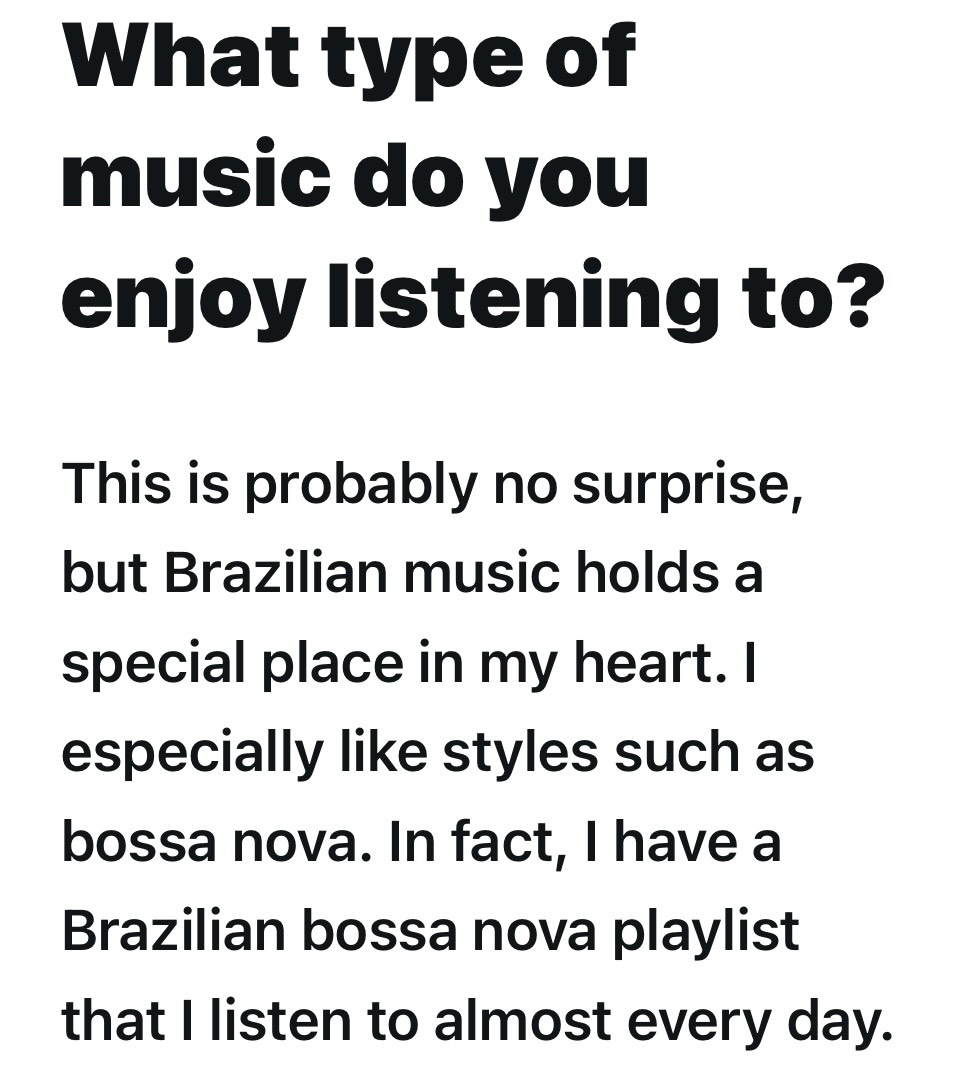In this lesson, you will practise speaking about the topics of (1) chocolate and (2) staying up late. This lesson uses a sample band 9 demonstration for Part 1 of the IELTS Speaking exam.
Step 1: Tune in to this week’s podcast episode (audio and video version available below).
| Part 1 Questions Where are you from? Do you work or study? Let’s talk about chocolate. Do you like eating chocolate? When do you eat chocolate? Let’s talk about routines. Do you stay up late at night? Why do you stay up late? How do you feel in the morning after staying up late? Has staying up late affected your productivity? |
| 🧑🎓Target language: kickstart(verb) -get something started “I often need a strong cup of coffee to kickstart my day.” |
Step 2: Listen to the sample a few times to get more familiar with the language.
Step 3: Engage this week’s full speech shadowing lesson. (If you do not yet have access, click here to sign up for full lessons.)
Step 4: Below is Monday’s speech exercise. Post yourself saying this excerpt to your Whatsapp group. Exercises for Tuesday to Friday will be posted in the group by your instructor. (If you have not yet been added to a group, click here to sign up – select ‘Join a Whatsapp group’.)
| Post yourself saying this into your Whatsapp group!🗣️📲 “I’m from the city of Mumbai. It’s located on the western coast of India and is known as a major financial hub in Asia.” |
Step 5: It’s very important that you note any new language items or pronunciation points from this week’s lesson in your journal to help you chronicle your improvement.📝
Transcript
Where are you from?
I’m from the city of Mumbai. It’s located on the western coast of India and is known as a major financial hub in Asia.
Do you work or study?
I currently work as a software engineer. I mostly do front end development to help enhance the user experience.
Let’s talk about chocolate. Do you like eating chocolate?
Yes, I absolutely love chocolate. It’s one of my favourite treats.
When do you eat chocolate?
I wouldn’t say I eat it a lot, but when I do have it it’s usually in the evening as a dessert. Sometimes, I might have a small piece in the afternoon as a quick energy boost, too.
Let’s talk about routines. Do you stay up late at night?
Yes, I often stay up late at night, especially on weekdays.
Why do you stay up late?
My work sometimes requires me to collaborate with international teams in different time zones, so this is almost always why I need to stay up late. When we have important deadlines to hit, I might not get to bed until as late as 3 am!
How do you feel in the morning after staying up late?
In the morning, I usually feel quite tired and sluggish if I’ve stayed up late. It takes me a bit longer to get started and feel fully alert. I often need a strong cup of coffee to kickstart my day.
Has staying up late affected your productivity?
Yes, staying up late has definitely affected my productivity. While I can accomplish a lot at night, it often leads to a lack of sleep, which in turn affects my concentration and efficiency the next day. Because of the international nature of my job, I unfortunately don’t really have the option for better work-life balance at the moment.
